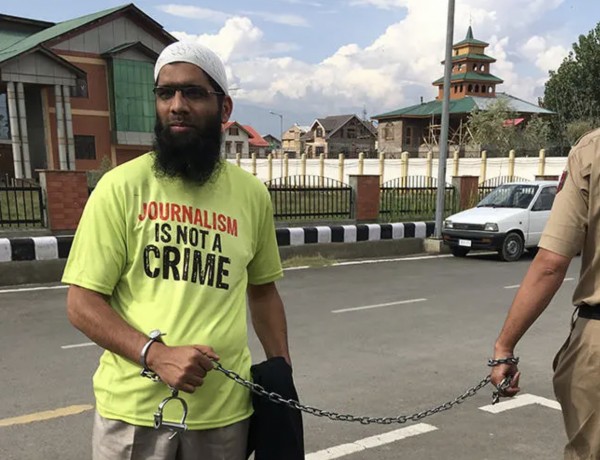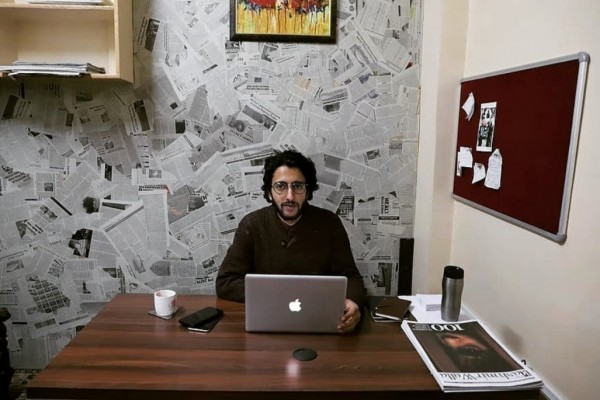The International Press Institute (IPI) today expressed dismay at the second murder of a journalist in India this month and urged the country’s government to ensure that those responsible for the deaths are brought to justice.
Sandeep Kothari, a journalist from the Madhya Pradesh state in India, was found dead Saturday night after having been kidnapped late on Friday.
Police have arrested three local youths in connection with the killing and said the youths had admitted to murdering, setting on fire and burying the journalist. According to the police, the arrested men have ties to illegal mining in the area, a topic Kothari covered. Local reports also indicated that he had filed a complaint in court over the practice.
Police in Madhya Pradesh announced that they would form a Special Investigation Team (SIT) to probe the murder, but the Madhya Pradesh Working Journalists’ Union demanded a Central Bureau of Investigation (CBI) probe. The union’s district president, Indrajeet Bhoj, said Kothari “boldly and fearlessly wrote against the mafias”.
However, police claimed Kothari had a long criminal history, noting that he was facing three rape charges, all filed by the same complainant. They suggested that he was killed by associates rather than in connection with his journalism, but Kothari’s family counters that the accusations against him were false, intended to target him for his journalism.
“I pleaded with him so many times, leave journalism, you will die,” Kothari’s sister Sandhya told local media.
IPI Director of Advocacy and Communications Steven M. Ellis today said that the death of Kothari was especially troubling coming so soon after the burning death of another journalist on June 8 in neighbouring Uttar Pradesh state and an incident last week in which another journalist in Uttar Pradesh reported that he was beaten and dragged behind a motorcycle.
“We are deeply concerned both by the nature of these attacks and the chilling effect they may have on Indian journalists, particularly those who seek to expose allegations of wrongdoing by officials,” Ellis said. “Indian authorities must do everything within their power to bring those responsible to justice in order to send a clear signal that violent attacks on journalists will not be tolerated.”
Kothari’s death came one week after journalist Haider Khan said he was lured by a false tip to the scene of a recent robbery in Pilibhit, where four or five men then surrounded him and beat him before tying him to a motorcycle and dragging him approximately 100 metres.
It also came less than a month after the death of Jagendra Singh, a social-media journalist from Uttar Pradesh, a state that borders Madhya Pradesh. Police officers allegedly set Singh on fire during a raid of his home on June 1 and the journalist died a week later. The police maintain that Singh set himself on fire, a claim they said was bolstered by an initial forensic report released today.
But Singh, just prior to his death, accused Uttar Pradesh Minister for Dairy Development Ram Murti Verma of sending the men to kill him. In the months preceding the attack, Singh posted that Verma was involved with illegal mining, corruption and the gang rape of a health care worker.
India’s Supreme Court yesterday told the central and Uttar Pradesh governments to respond to the request for a CBI probe into Singh’s death. Also yesterday, Uttar Pradesh Chief Minister Akhilesh Yadav announced that €42,000 would be awarded to Singh’s family and he promised government jobs to two of Singh’s children. But the minister did not guarantee a CBI probe into the killing.
No arrests have been made in connection Singh’s death. Further, on June 16, a woman who was the sole witness to Singh’s burning changed her story while under police questioning and said Singh set himself on fire. She was the health care worker who Verma and his men allegedly had raped.
The woman was reportedly in Singh’s home on the day of the attack to warn him about writing against Minister Verma. After she changed her account of the attack on Singh, the police placed guards around her house.
Sources with the police told the Hindu that her revision could alter the course of the investigation, allowing all accused to escape punishment. Singh’s son claims she changed her position due to pressure from the minister.
Singh’s family threatened to commit suicide unless authorities remove the minister from his post and the CBI begins a probe. Following a meeting with Yadav, they accepted his offer, which did not guarantee a CBI probe, and they ended a protest they had been staging during the last two weeks.



